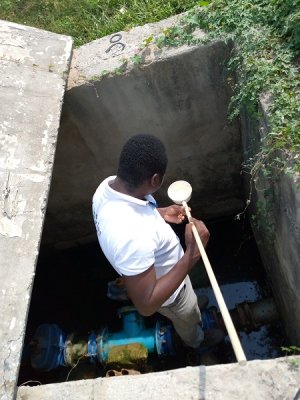
"Pyscho-Afro mosquitoes: Investigating Psychographic determinAnts of students and entomological factors on the use of genetically modified mosquitoes for control in Africa" is one of the chosen One Health Network Funds Projects 2021/2022, led by Dr. Andreas Kudom.
Mosquito-borne diseases (MBDs) such as malaria and dengue continue to be an enormous global, One Health burden. Rapid urbanization and environmental changes have affected mosquito distribution, facilitating the spread of some species into new territories. The emergence of insecticide resistance in mosquito vectors has also affected the effectiveness of control tools. This has put millions of people at risk of MBDs.

To prepare against any potential outbreak of MBDs, there is the need for up-to-date information on mosquito distribution as well as the development of new tools for vector control and prevention of disease transmission. Currently, available methods to control mosquito vectors are based on the use of insecticides and the elimination of mosquito larval breeding sites. However, the emergence of insecticide resistance and changes in mosquito behaviour is affecting the effectiveness of these tools. Genetically modified (GM) mosquitoes have been proposed as part of an integrated vector control strategy for mosquito control. However, genetically modified organisms (GMOs) face strong scepticism in many countries and little data is available on peoples’ perspectives on GMMs in Africa. On the other hand, people with a high level of education could have better an understanding of the concept of genes, and for that matter, have a better-informed perspective on the use of GMM for vector control.
Project aim:
Thus, adopting a multidisciplinary approach involving qualitative, quantitative and entomological methods, the Psycho Afro-mosquitoes project aims at investigating the perspectives of students from tertiary institutions (Cape Coast, Ghana; Jimma, Ethiopia; and Beira, Mozambique) on the use of GMM, and how such perspectives could be influenced by the level of knowledge on the biology of mosquitoes as well as the level of activity of mosquitoes in their communities.
The results will give insight into the human and mosquito behaviour on the existing and future control tools. Due to the influence of human activity on disease incidence and the direct and indirect impact on human health and livelihoods, such knowledge is also required in advance for preparation against any disease outbreak.

